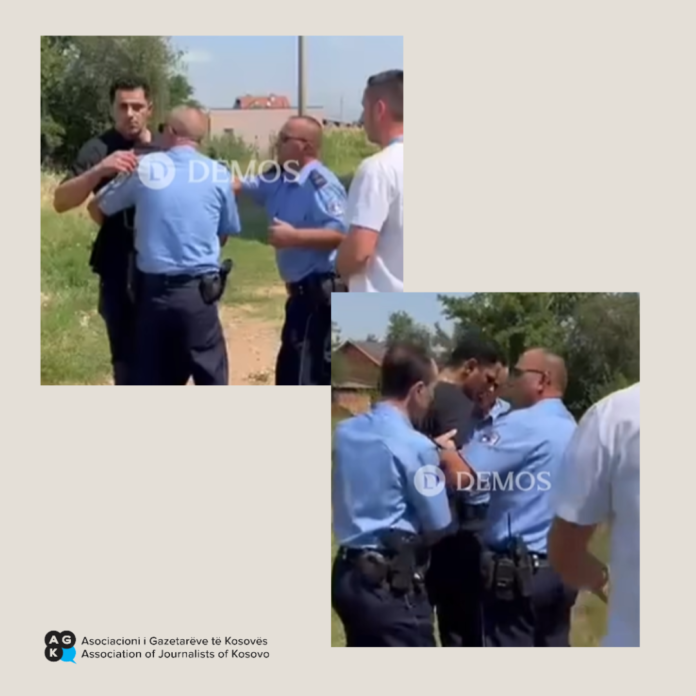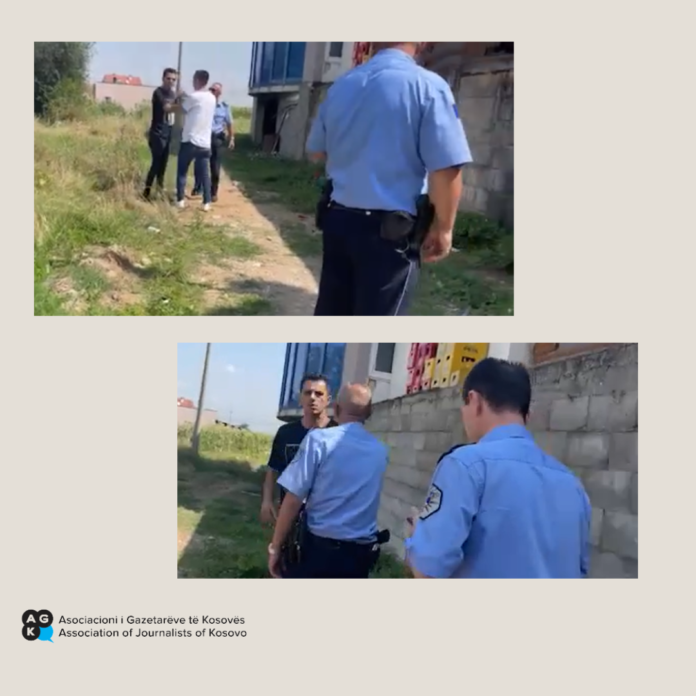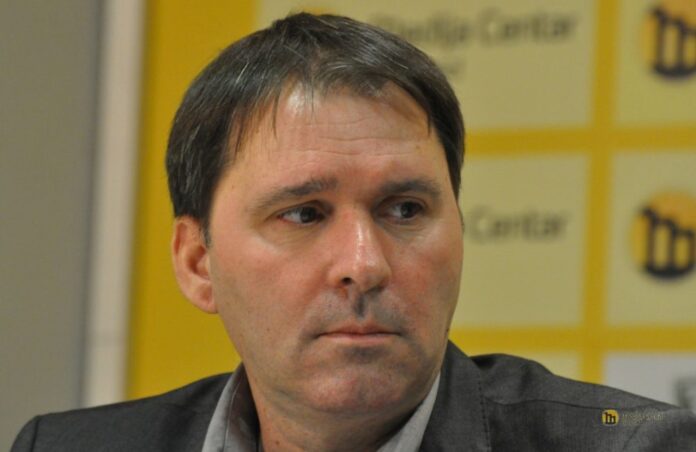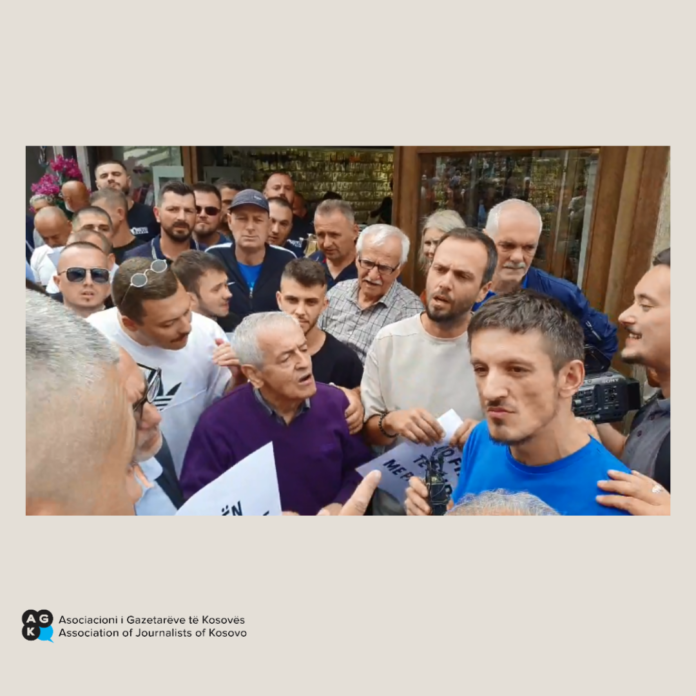BIRN’s latest monthly review of digital violations in south-east Europe highlights how Turkey and Croatia are grappling with digital censorship and the threat of increased government control, while across the Balkans, journalists face escalating problems online.
In Turkey over the past month, online censorship, surveillance and arrests had a negative impact on independent journalism, while Croatia’s proposed Media Law raised concerns about increased government control and potential censorship that could endanger investigative reporting and threaten the protection of journalists’ sources.
In Turkey and North Macedonia in July, content removal orders and legal battles also posed threats to press freedom as the digital realm continued to be a battleground for information control in both countries.
Digital threats were also registered in Albania, Bosnia, Montenegro and Romania and Serbia, with increases in verbal attacks on social media, negative online campaigns and derogatory comments targeting journalists.
Kosovo and Bosnia meanwhile saw an uptick in digital misinformation last month through doctored photographs and false news.
Threats to media freedom online in Turkey
In Turkey, press freedom has deteriorated significantly, with President Recep Tayyip Erdogan’s government facing widespread criticism for its treatment of journalists. Digital threats to journalists have escalated, as online censorship and surveillance have become common practices.
The government’s use of stringent anti-terrorism laws has resulted in the arrests and detentions of journalists, leading to self-censorship and a shrinking space for independent journalism.
A report by Turkey’s Media and Law Studies Association revealed that a majority of journalists in the country feel unsafe while performing their duties, facing physical assaults and online attacks. The digital sphere, including social media platforms, has been weaponised to monitor and silence dissenting voices, posing serious risks to journalists reporting on sensitive issues.
Two prominent cases in July shed light on the struggles faced by media organisations and individuals in the country.
International news agency Reuters found itself embroiled in a legal battle with Turkish authorities over an article that revealed investigations by US and Swedish prosecutors into a graft complaint involving President Erdogan’s son.
A Turkish court ordered the removal of the article from Reuters’ website, saying it had violated the son’s personal rights.
Reuters then appealed against the court’s takedown order, asserting that it conflicted with Turkish legal protections for freedom of the press and freedom of expression.
Another case that emerged in July centred on allegations of sexual misconduct against Gıyas Güven, the former provincial director of a company called Ağrı İŞKUR. It was alleged that Güven engaged in deceptive practices, promising job opportunities to women in exchange for sexual favours.
As the scandal gained attention, Güven was suspended from duty and an investigation was launched.
In response, Turkish authorities blocked access to 422 pieces of online content related to the allegations, including news articles, videos, tweets and other social media posts.
The situation escalated when Hilal Kaplan, a prominent columnist for Sabah newspaper, used her influence to block access to other pieces of online content. Her actions led to the blocking of 50 more articles, bringing the total number of blocked pieces to 446.
Among the censored pieces of content were news stories, social media posts and even weather reports.
New Croatian media law causes alarm
In Croatia in July, a proposed Media Law raised alarms over potential threats to freedom of expression in the digital space. Journalists and media organisations, in particular, fear that the law’s provisions may grant the government unprecedented control over journalistic freedoms and self-regulation. This includes empowering publishers to reject journalistic pieces without explanation, potentially leading to online censorship.
The requirement for journalists to disclose sources could undermine investigative reporting and jeopardise the safety of whistleblowers. The establishment of a State Register of Journalists has also raised concerns about government control and intimidation.
Experts say there is growing fear that the government might exploit online tools to stifle dissenting voices and manipulate public opinion in its favour.
Meanwhile in North Macedonia in July, a journalist and online editor at the daily newspaper Sloboden Pecat, Zarko Nastoski, reported that his article on a government decision regarding a controversial gold mine initiative in the country’s south-eastern region was removed from the paper’s online edition without his knowledge or permission. The article focused on the government’s decision to open a gold mine, which has faced strong opposition from local residents.
The removal of the article prompted Nastoski to resign in protest. However, the Sloboden Pecat editorial team countered his claims, stating that he had published the article without their permission and without an active employment contract with the company at the time of publication.
The editorial team further argued that the article contained unconfirmed information that could hold the company liable. Despite the response, the editorial team did not provide a clear explanation about why the article was removed without any prior notice or explanation.
Threats and intimidation across the region
Journalists and media outlets across south-east Europe experienced threats, insults and attacks in July.
In Serbia, the director of the company Lasta, a member of the ruling Serbian Progressive Party, posted a video on social media that targeted journalists and presenters from N1, Nova S, and Nova newspaper, portraying them as pests that needed to be eradicated.
Also in July, the president of Bosnia’s Serb-dominated Republika Srpska, Milorad Dodik, launched a verbal attack online against journalist Dinko Gruhonjic, accusing him of chauvinism.
The attack followed Gruhonjic’s appearance on N1 TV, during which he discussed court cases related to the Srebrenica massacre. Subsequently, Gruhonjic began receiving threats on social media platforms.
President Dodik’s accusations were not limited to the journalist alone but also targeted N1, demanding a ban on the N1 network’s operations within Republika Srpska.
In Montenegro, journalists from the daily newspaper Vijesti also received online insults and threats using offensive language. Some were falsely accused of having connections to drug-dealing gangs.
In Albania, a dispute between media owners fuelled by the arrest of a company owner on charges of stalking and violence against his former roommate, as well as allegedly publishing a video without her consent, led to a derogatory article that insulted journalist Anila Basha, published by the online media outlet Prapaskena.com. The article also made inappropriate comments about Basha’s niece, and was accompanied by some private photos.
In Bosnia meanwhile, journalist Jasmin Mulahusic came under investigation by the prosecution for suspected criminal offences related to inciting national, racial, and religious hatred, as well as discord and intolerance, through his Facebook posts about other journalists.
Despite being under investigation, Mulahusic persisted in targeting other journalists. In a recent social media post, he openly threatened two of them.
Meanwhile, in Romania, influential blogger Marian Godina insulted journalists from the independent outlet Recorder for allegedly revealing unverified information about police misconduct. Godina claimed that the journalists had got their story wrong.
Doctored photos in Kosovo, misinformation in Bosnia
Journalists in Kosovo and Bosnia continued to encounter challenges to their professional reputations and safety in July.
In Kosovo, on July 2, 2023, a Facebook page called ‘Thënie nga Albin Kurti’ (‘Statements from Albin Kurti’) launched an attack on journalist Berat Buzhala by posting a doctored photograph of him.
The image falsely depicted Buzhala getting into a car with Serbian licence plates and was accompanied by a caption claiming that Buzhala saw Kosovo’s Prime Minister Albin Kurti as equivalent to wartime Yugoslav President Slobodan Milosevic.
The original photo however showed Buzhala with a car that had valid Kosovo licence plates and the Facebook page intentionally altered the image to spread misinformation about the journalist’s allegiances.
Buzhala denied the claims and clarified that the car plates had been digitally altered and that the vehicle belonged to a resident of Skenderaj, where he had gone to provide assistance where there was flooding in that area.
Meanwhile in Bosnia in July, a former music talent manager spread false information about the death of renowned Bosnian TV host Senad Hadzifejzovic in a post on Facebook. The former manager posted that Hadzifejzovic had passed away, stating that it was “sad news” and that he couldn’t believe it but hoped it was misinformation.
The post caused concern and distress among the public. It was swiftly removed from Facebook but showed how the dissemination of a piece of unverified news about public figures could have a serious impact.
Bosnia has been covered by Elma Selimovic, Aida Trepanić and Azem Kurtic, Turkey by Hamdi Fırat Büyük, Albania by Nensi Bogdani, Romania by Adina Florea, North Macedonia by Bojan Stojkovski and Goce Trpkovski, Montenegro by Samir Kajosevic, Kosovo by Diedon Nixha, Croatia by Matej Augustin and Serbia by Tijana Uzelac & Kalina Simic.











